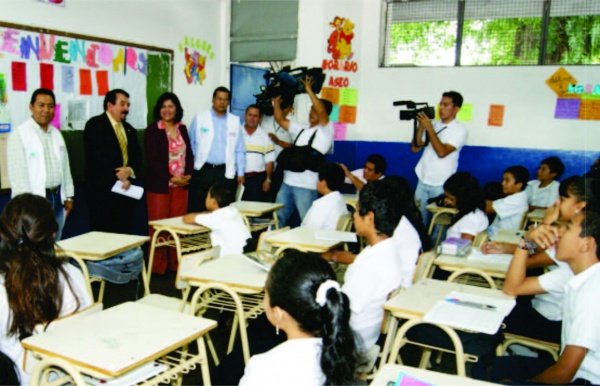Intersectoral Health Commision (CISALUD)
Created in the context of El Salvador's 2009 health reform, CISALUD is an intersectoral forum that has adopted a social determinants approach to inequities in health among population groups caused by: inequitable distribution of health problems; lack of access to public health services; impact of elevated health costs on the family economy; lack of information on health inequities among different population groups; and the failure to identify health issues that may require interventions from other sectors besides health.
Meets the criteria established under Health in All Policies:
- Political commitment. CISALUD enjoys political commitment from the highest levels. Created by presidential decree, it is coordinated by the Ministry of Health through its Vice- Ministry of Health Policy.
- Separate structure. CISALUD has a Policy Committee and a Technical Committee. The Ministry of Health chairs the Policy Committee, which is comprised of the heads of over 35 government ministries and agencies and nongovernmental and civil society organizations. The committee meets monthly to make decisions concerning social determinants and activities to address the challenges identified. The Technical Committee includes technical professionals from government institutions and cooperation agencies. Chaired by the Vice-Minister of Health Policies, it meets on a monthly basis to formulate recommendations for actions by the Commission.
- Participation of other sectors. CISALUD is a forum for intersectoral dialogue. It involves a range of sectors and stakeholders in conducting assessments and developing recommendations for action, including: education, defense, foreign affairs, public security, finance, work, agriculture, public works, environment, tourism, FOSALUD, ISRI, COSAM, National Civilian Police (PNC), COMURES, COAMSS, ISSS, transportation, DGCP, Institute of Forensic Medicine; Legislative Assembly; ECA; CEL; ANDA; OIRSA; the Consumer Ombudsman; Civil Protection, (CENSALUD).
- Separate budget. CISALUD does not have its own budget for committee meetings. Each institution involved is responsible for financing, according to its means, the activities to be implemented pursuant to the Commission's decisions.
- Focus on reducing inequity. While CISALUD's recommendations apply to the population as a whole, they particularly target groups living in extreme poverty or groups that have traditionally been excluded from decision-making affecting their health, which increases their vulnerability and risk: women, teenagers, groups with different sexual orientations, indigenous peoples, rural communities, etc.
- Intersectoral action. Every sector is asked to make recommendations for implementing the priority actions under its purview. CISALUD, in turn, identifies specific challenges to be addressed—such as avian flu, cholera, etc.—, their causes, and other associated factors. Actions are identified and included in the intersectoral plans developed by the participating agencies. This strategy has prompted the relevant sectors to implement policy changes that better reflect the health impact of their actions. CISALUD has also developed guidelines for policies and norms, as well as for other technical and legal instruments that strengthen health promotion initiatives.
- Public policy. CISALUD contributes to policies that impact health based on a holistic vision of health challenges. For example, CISALUD designed the Integrated Plan to Fight Dengue which was launched in 2010. Its five strategic lines include: (1) implement a management system for municipal, departmental, regional and national plans; (2) develop social, community and institutional communications systems; (3) implement environmental controls; (4) strengthen clinical management of dengue; and (5) strengthen epidemiological surveillance. El Salvador's national health policy, “Construyendo la Esperanza” (Building hope), includes reorganizing the national health system around an intersectoral approach to primary health care.
- Evidence of results. No scientific evidence was presented of CISALUD's results. However, its members are accountable to their respective institutions and to CISALUD for all activities carried out pursuant to the Commission's decisions.
- Social participation. CISALUD sponsors public consultations with the support of the National Health Forum, which is made up of community leaders, nongovernmental organizations, the national university and other academic institutions.
